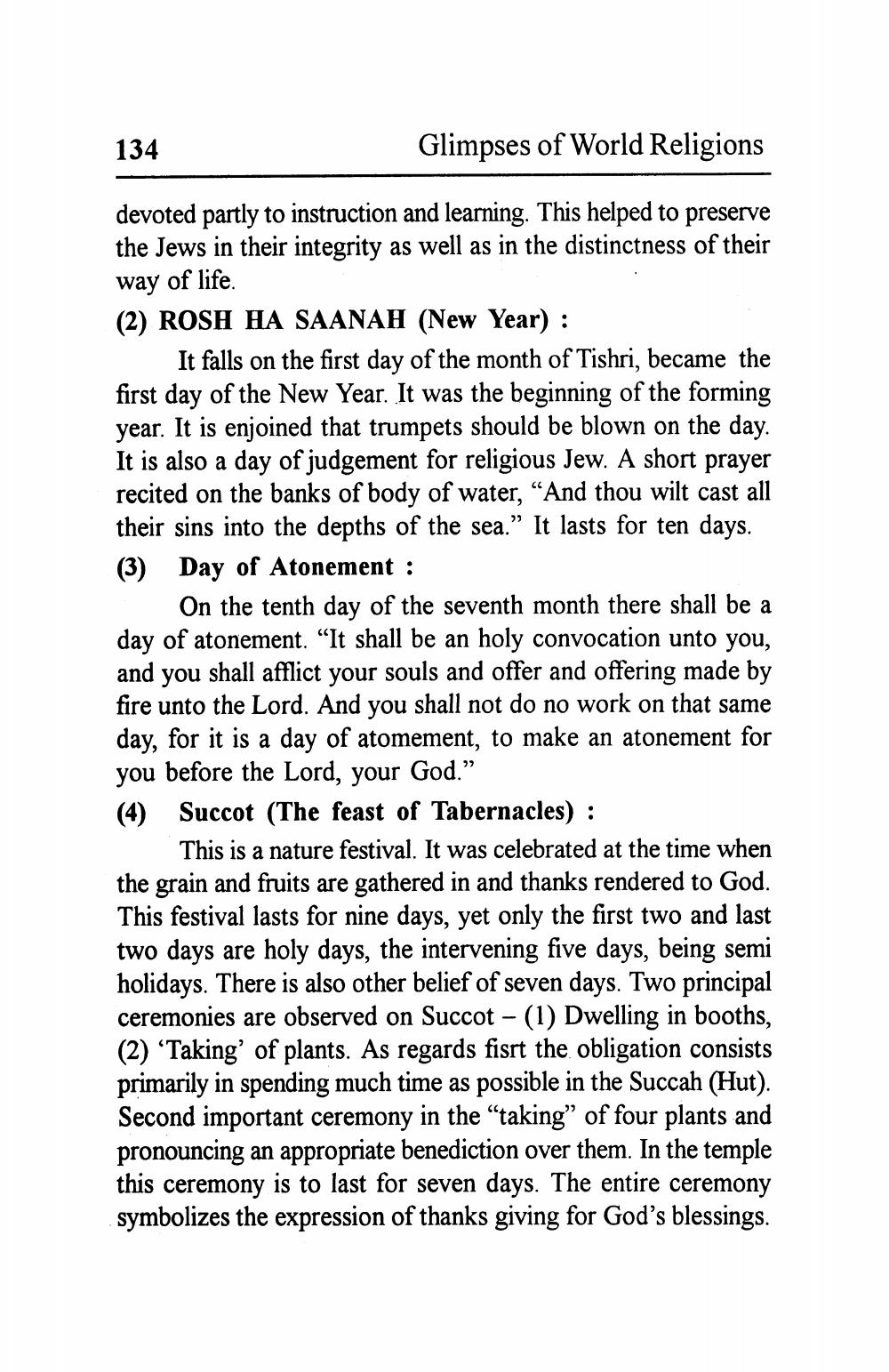________________
134
Glimpses of World Religions
devoted partly to instruction and learning. This helped to preserve the Jews in their integrity as well as in the distinctness of their way of life. (2) ROSH HA SAANAH (New Year) :
It falls on the first day of the month of Tishri, became the first day of the New Year. It was the beginning of the forming year. It is enjoined that trumpets should be blown on the day. It is also a day of judgement for religious Jew. A short prayer recited on the banks of body of water, “And thou wilt cast all their sins into the depths of the sea." It lasts for ten days. (3) Day of Atonement :
On the tenth day of the seventh month there shall be a day of atonement. “It shall be an holy convocation unto you, and you shall afflict your souls and offer and offering made by fire unto the Lord. And you shall not do no work on that same day, for it is a day of atomement, to make an atonement for you before the Lord, your God.” (4) Succot (The feast of Tabernacles) :
This is a nature festival. It was celebrated at the time when the grain and fruits are gathered in and thanks rendered to God. This festival lasts for nine days, yet only the first two and last two days are holy days, the intervening five days, being semi holidays. There is also other belief of seven days. Two principal ceremonies are observed on Succot - (1) Dwelling in booths, (2) 'Taking of plants. As regards fisrt the obligation consists primarily in spending much time as possible in the Succah (Hut). Second important ceremony in the "taking” of four plants and pronouncing an appropriate benediction over them. In the temple this ceremony is to last for seven days. The entire ceremony symbolizes the expression of thanks giving for God's blessings.




